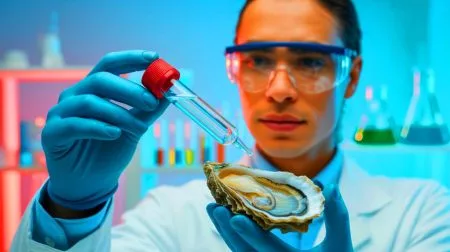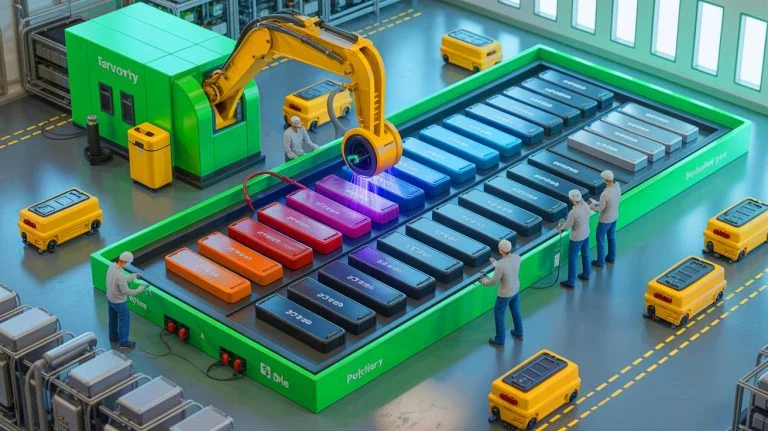| IN A NUTSHELL |
|
As electric vehicles (EVs) become increasingly popular, the demand for lithium, a key component in EV batteries, continues to rise. However, this demand poses environmental challenges, making efficient recycling methods critical. In this context, a significant breakthrough has been achieved by two European companies, Syensqo and Cylib, who have developed a novel approach to recover high-grade lithium from spent EV batteries. This development not only promises to reduce environmental impact but also supports the sustainable growth of the EV industry.
Innovative Collaboration in Battery Recycling
The collaboration between Syensqo and Cylib marks a significant milestone in the battery recycling industry. By combining their technical expertise, the two companies have successfully extracted and purified lithium from a variety of battery chemistries on a single operating line. This achievement is unprecedented and has the potential to revolutionize the recycling process.
The purification process yields battery-grade lithium hydroxide, which can be used to manufacture new EV batteries. This is crucial as the surge in EV usage has led to an increased demand for larger, more powerful batteries. The ability to recycle lithium efficiently addresses both environmental concerns and the growing need for lithium in the EV market.
By working together, Syensqo and Cylib are setting new standards for lithium recovery, demonstrating how innovation and collaboration can drive sustainable solutions in the tech industry.
The Process of Recycling EV Batteries
Recycling spent EV batteries involves several complex steps. Initially, the batteries are discharged and disassembled into their components, such as casings and connections to the battery management system (BMS). Following this, a mechanical process shreds the components in an inert atmosphere to prevent fires, with the shredded material sorted to remove plastics and metals from the valuable black mass.
The recovery of lithium from the black mass is a challenging step. It can involve high-temperature treatments or chemical solutions to separate and purify the dissolved metals. Traditionally, these methods require specialized processing lines, increasing the capital expenditure for large-scale operations.
However, the partnership between Syensqo and Cylib simplifies this process by integrating their technologies into a single operating line, reducing costs and increasing efficiency. This approach not only streamlines the recycling process but also enhances the economic viability of lithium recovery.
Achieving High-Purity Lithium Hydroxide
The collaboration’s success lies in the use of a hydrometallurgical process for lithium recovery, enhanced by Cylib’s innovative OLiC (Optimized Lithium and Graphite Recovery) process. This water-based method significantly reduces the carbon footprint associated with raw material extraction, making it an environmentally friendly option.
Syensqo contributes its expertise with a patented solvent extractant that is highly specific to lithium, ensuring the purity of the recovered material. The result is lithium hydroxide of a quality that surpasses the standards required by cathode active material (CAM) manufacturers, aligning with Europe’s circular economy and battery regulation goals.
This breakthrough highlights the importance of technological advancement and cooperation in addressing environmental challenges and supporting the sustainable development of the EV industry.
The Future of Lithium Recycling
The innovative approach developed by Syensqo and Cylib is a promising step forward in the field of battery recycling. By recovering high-purity lithium from spent batteries, they are not only reducing environmental impact but also contributing to the sustainable supply of critical materials for the EV industry.
As demand for EVs continues to grow, the need for efficient recycling methods becomes increasingly urgent. The work of these companies demonstrates how industry leaders can collaborate to create scalable, high-purity lithium recovery routes that support both economic and environmental goals.
Looking ahead, the success of this collaboration could inspire further innovations in the recycling industry, encouraging more companies to adopt sustainable practices and technologies. What other breakthroughs might we see in the future of battery recycling, and how will they shape the landscape of the automotive industry?
Did you like it? 4.7/5 (29)






Is this method scalable for global use or just Europe? 🤔
Thank you for shedding light on this important topic. It’s crucial for the future of EVs!
Sounds promising, but how cost-effective is this really?
Great article! But can this tech handle all types of EV batteries? 🔋
Interesting read, but how do you deal with the toxic waste from this process?
Finally, some good news about recycling. Keep it up, Syensqo and Cylib!
Isn’t this just another corporate greenwashing scheme? 🤨
I wish this tech was available when I scrapped my old EV. 😅